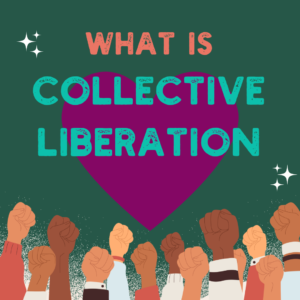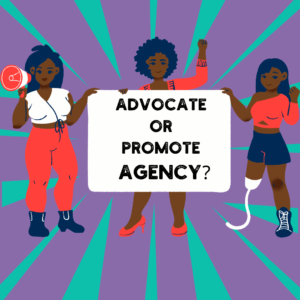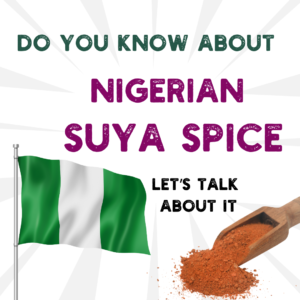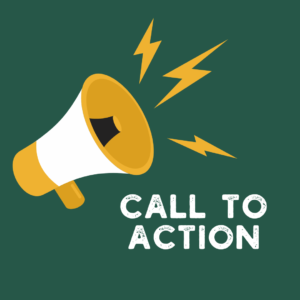global village
Here at Suzanne Barr Food, we are reshaping our community by sharing traditions, discovering new customs, understanding the importance of sourcing ethical ingredients and recipe preservation techniques that disband culinary biases and realign connections to our cultural foodways.
Collective Liberation

You may have heard the term “Collective Liberation” lately. If not, we’d like to share this term with you to hopefully bring you to a new way of thinking and living. Or perhaps you’ll find that it’s something that your soul has been calling for recently, but you just didn’t know the words to describe the call.
If you’ve heard it before and already know that it’s the path for you, we are so delighted to be there with you. If you’re just hearing it now, welcome to the party!
Collective Liberation is basically calling/fighting for the freedom for all people. No matter class, race, nationality, gender, age, ability, etc. It is recognizing that all groups that are oppressed are intersectional (meaning they can, will, and do overlap) and we are all tied together.
If one group is oppressed, then none of us are free from oppression.
Why is this important?
Because we can’t just call for the end of oppression of one group of people and then be okay with another group being harmed. Whatever we allow for one oppressed group, will eventually be allowed for other groups.
We are all connected, just as trees are connected to one another via their roots (look up mycorrhizal networks).
We must all fight for each other’s rights to life, love, freedom. What many fail to realize that when we stay silent, turn our eyes and hearts from those being harmed by different oppressors (usually rooted in colonialism, which comes from White Supremacy), we are giving the okay to these harms and well they eventually come back to us in some harmful form. If we don’t give in to our true nature of empathy to others, it will not just stop at borders, it will be at our door somehow.
So making it a point to fight for collective liberation, however is right for you, is crucial for the survival of our lands, animals, people.
There are tons of amazing educators, creators, activists, authors, etc to learn from. Our Co-Founder, Jessi Cornett, has compiled a list so lovingly on her site, please check out jessicornett.com (scroll to the bottom to view)
If you would like to add to this list, please comment below. We always love to learn and unlearn.
First step is fighting for Collective Liberation and the second is Collective Healing.
Community is everything and we are nothing without it and LOVE.
We wish you all the love.
Love note to you

Hey Fam,
Here at SBF, Suzanne and I are so honored to have a community of folks who share the same love and values for the people, the land, art, music, and FOOD!
On the regular we talk about all the truly heavy, terrible, unjust things happening all over the world, whether it’s Palestine, the Congo, Sudan, Haiti, Hawaii, Puerto Rico, Lebanon, (the list is long) at the hands of capitalism and colonization or it’s something in our own physical community.
It can feel daunting, hopeless, tiring, never ending.
We find our balance in those conversations by talking about the beautiful things we’ve experienced recently, whether it was a quiet moment alone or a moment with our kids. Or even an interaction with a stranger. Maybe a podcast or a recent book we’ve discovered.
Suzanne and I believe in the balance. We believe in taking time, being intentional with our energy, words, efforts and such. We sometimes have to remind one another that we are doing the thing we need to do in this moment as long as we are doing it with our heart and intention.
Our intention is always love. We are guided by it.
We hope the same for you. Lead with love. Share it
Give yourself the love that you give others. Treat yourself the way you’d treat your favorite person. It’s okay to do that. You deserve it. You are worthy. You are love. You are loved.
If you feel overwhelmed by the horrible things happening around your community, our world, across the oceans, heck maybe even in your house…..do something for yourself, even if it’s as simple as taking a few minutes to put lotion on your hands, face and feet. Do it slow and deliberate. Tell yourself beautiful things.
Or
Go out into nature and notice the birds singing, what’s that song? How’s the wind feeling on you face? What’s it telling you? What are the clouds saying with their formation? Or the light coming through? How do the leaves feel when you step on them or if it’s Spring for you, how do they smell while they are growing? Nature is our family and it wants the best for us. It just asks for protection in return (that’s a different post)
or
Turn on some music that makes you sway, your head bob or your feet tap. Anything that moves you.
Know that you’re not alone in this world, many many people feel like you even if they are far away from where you are.
And finally, after you’ve pulled love from the source within, go out and see who needs help. Everywhere we look there is someone, some animal, some plant, maybe even some insect that could use our help.
Share that love.
This will help tip the scales of injustice in the world.
Love.
Our hamburger and the tragedies in the Amazon Rainforest

Have you heard about the fires raging in the AMAZON!!??? No, not the Amazon company’s warehouse, but the actual Amazon.
What!? A place that until recently could never really be on fire because it was too wet. However mostly due to deforestation which brings droughts as well as a myriad of other issues, the Amazon has been decimated. Along with the animals and people.
So you ask, what does this have to do with my burger?
The deforestation has been tied to the meat and SOY industry. Some say that the fires were actually set by local farmers in order to make way for more farmland to either raise cattle for our burgers or to plant soy.
check out one of the very easily googled articles I found on the topic
https://abcnews.go.com/International/control-fires-ravage-amazon-region/story?id=113545475
So what can you do?
a) Cut down on the meat and the soy products. If you need those proteins, know where it is coming from. How it is treated, etc.
b) support your local farmers
c) become vegan all together (but also exclude soy)
d) sign petitions that support farms that use ethical practices
e) stay aware and engaged
f) as with every day life, always look for ways to help
It’s not hopeless, we just need to show that we care more about the earth, animals, people than we do about a good burger.
We have to put our money away and say, we won’t pay for destruction.
Agency over Advocacy

A recent docu series podcast about Environmental Justice, “Help This Garden Grow” (link below) touched on many important things that we highly recommend you taking the time to listen to.
One of the things in the last episode that popped out was a few words from a resident of the community in which the docuseries is based on, Altgeld Gardens. He talked about people outside the community coming in to show support by advocacy but not by promoting agency. And that’s a substantial difference in support.
You maybe thinking, what is advocacy and what is promoting agency…..? Keep reading and hopefully we will be able to figure this out together.
To start off, just note that in life Agency is a RIGHT! It is basically what we all deserve.
Agency over our bodies, our food, our home, our education, our WATER, our environment, our communities.
We’ve been fortunate here at SBF to have been able to travel a great deal. And the way we like to travel is not about focusing on seeing tourist attractions (there’s nothing wrong with that by the way, we do actually see some on our travels). Our focus is usually with connecting with the people, land and even animals of where we are visiting. Seeing how they live, what they feel, what they believe, what they EAT!!!!! In our younger years we may have visited places where we saw the issues of that particular community and thought we knew the solution, which is totally a normal colonized reaction. So unashamedly we advocated for the changes we thought were best. Now we are older and listen more than we speak, it’s clear that is not the way.
People in communities don’t need people coming in from the outside and telling them how to fix their issues. There’s usually quite a few elders (old and young) who know the solution(s), but they just don’t have the means to fulfill them. Quite possibly because the means that they could possibly have are being used by advocates.
So what do we do about this?
First, we listen. We read and listen to the words being said from inside that community. They are well aware of their issues and as said before, they have an idea of how to fix them. Second, we can ask them how we can help, but we must be humble and know our place is to support, not to take over. Third, use whatever privilege we have. If we know people who know people, make introductions. Connections and money rule the world sadly, so help make connections. Fourth, if we have the means, donate. Fifth, if we don’t have the means, be sure to share and educate others on the issues and also volunteer our skills to help the movement. Sixth, sign all petitions, email and call the government representatives. Seventh and etc, protest, boycott, divest, etc, make art to talk about the movement, pray, meditate, manifest…. There are myriads of ways to help.
Another way to help is to talk within the community and see if there are people within who want to go to school and get the proper education to address their community’s issues. If so and those people don’t have the means, we should do all that we can to support them. Whether it’s fundraising, sponsoring, mentoring, offering to help with applications, driving them to work, to meetings, to class. Offering a spare room to cut down on school costs, paying for their books, etc.
We have got to think and act as a community, even if it’s for people outside of our own community.
And listen! Amplify! Be an agency supporter, not an advocate.
Story time!
About 11 years ago, I heard a story from an american woman who was living and working in Tanzania. She was talking about the work she had done over the years and mentioned how in the beginning, one of the projects was to bring plumbing to a village.
After months of planning and gathering the money for the pipes and labor, they successfully brought water into a few homes as well as the center of the village. They were so pleased with themselves and even had a village celebration. Everyone seemed so happy and grateful.
A few months later they went back to check on the village and were shocked to find that there was no water. The villagers had dug up the pipes and used them to build things that they actually needed. The americans were so angry and confused. Not understanding why these villagers weren’t overly grateful to them for fixing their water issues.
The elders came and spoke to them and it was then that the americans realized that they had never actually asked the villagers what their problems were and how they could aid in fixing them. They just assumed that not having access to water was a huge issue because it is in so many parts of the world, but not for this particular village.
So next time we see a problem outside of our village, ask a few locals what they think are their biggest problems and wait for their solutions. You may just learn something and decolonize your mind.
Much love!
To listen to the podcast, go to
Let’s talk about Nigerian suya spice

Get ready to crave a spice you’ve likely never tasted before. Suya!
One of the most popular Nigerian street foods is a beef kebob called Suya (pronounced “sue-ya”). The spice used to marinate it is called either yaji (prounouced “YaA Gee”) or suya.
Suya spice is a dry peanut based rub, typically used for marinating meat. It has a nutty, spicy, and smoky taste with delicious onion and garlic undertones. You’ll find most Nigerian homes will have this spice within reach, ready to use.
In fact, even though it is known for marinating beef before grilling, you can use it for almost anything. We’ve seen some sprinkle it on roasted Brussels sprouts, grilled eggplant and courgette, or even on rice noodles!
It is an incredible condiment to use on really anything that needs a little extra spicy kick.
Some Nigerians believe that suya is an aphrodisiac. So you will sometimes find two different sets of the spice in a home, one for the parents and the other for the children and guests (this is usually a mild version.)
Spicesinc.com gives a nice brief history on the Yaji spice, please see below, but also check out their website. (we are not affiliated with them, we just like what they have to say on the subject)
“The History of Yaji Spice
Most food historians attribute the origination of Suya to pastoral nomads such as the Hausa tribes of northern Nigeria, Cameroon, southern Niger, Ghana, and Sudan. Spiced meat was grilled on bamboo skewers or their daggers over a campfire to make the first versions of Suya. In Hausa, Suya means to fry1.
In Nigeria, it is called Suya. In Cameroon, it is called Soya. In Ghana, it is called Chinchinga or Sitsinga. Yaji refers to the seasoning mix, which typically includes ground peanuts, salt, pepper, paprika, and chili pepper. The flavor is complex, and the aroma is strong but pleasant. Heat levels vary depending on the cook, but the depth of flavor is consistent2.
Like Mole in Mexico, Suya has been called a unifying factor in Nigeria3 and has become the national dish with different regions claiming that their recipes and preparation methods are superior.
There is no standard recipe to produce the complex mixture of spices which make up the Suya and the spice mix served with it. The flavor is complex, and the aroma pleasant, but strong. Heat levels and spiciness vary depending on the cook, but the flavor is the draw that will make you overeat if you’re not careful.”
sources are https://spicesinc.com/seasoning-blends/suya-yaji-spice

Just got this email from a mailing list we subscribe to. We are not affiliated with them, but just thought to share this information and action alert for US folks
From the Earthjustice.org website
Did you know that the Environmental Protection Agency’s (EPA) Office of Pesticide Programs has just proposed to re-register a neurotoxic pesticide for use on our food and in our environment even though that pesticide has been linked to learning disabilities and behavioral disorders?
It’s time for real change. The EPA is collecting comments for the public to weigh in on the risk assessment for malathion and we have until September 16 to urge the EPA to protect children and farmworkers from exposure.
Malathion is an organophosphate pesticide widely used on raspberries, blueberries, tomatoes, alfalfa, many other fruits and vegetable crops, and is even used at Christmas tree farms. People are exposed to malathion through food, drinking water, pick-your-own farms, as well as from living near or working in the fields where pesticides are sprayed. Even at low levels of exposure, malathion can lead to serious negative health effects.
The EPA is reevaluating organophosphate health risk studies to decide whether to uphold safeguards for children and farmworkers. The Agency claims in a new risk assessment that malathion is 100 times less dangerous than it previously thought, even at the same exposure and toxicity levels. This proposed action to re-register the chemical without additional health protections relies on a misguided new approach to evaluating organophosphates, which includes the unprecedented use of petri-dish tests to justify reducing children’s health protections.
By improperly downplaying the known risks of organophosphate exposure, EPA is squandering a critical chance to safeguard the least-protected, especially farmworker communities, when the Agency should be doing the opposite.
Organophosphate pesticides are putting our health at risk, especially for children and farmworkers. EPA’s failure to properly regulate these neurotoxins is unacceptable. Join us in demanding action now. Send a letter to EPA today.
click here to send your letter